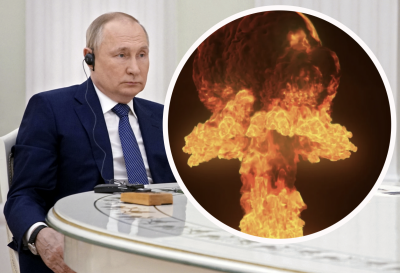
Moscow blames Ukraine war sanctions for preventing mutual inspection of its nuclear arms under New Start treaty
A Russian RS-24 Yars nuclear missile. Russia has suspended an arrangement that allowed US and Russian inspectors to visit each other’s nuclear weapons sites under the 2010 New Start treaty, in a new blow to arms control.
Mutual inspections had been suspended as a health precaution since the start of the Covid pandemic, but a foreign ministry statement on Monday added another reason Russia is unwilling to restart them. It argued that US sanctions imposed because of the invasion of Ukraine stopped Russian inspectors travelling to the US.
“At a time when US and Russian relations are tense, anything that undermines stability and nuclear predictability is a concern,” said Jon Wolfsthal, who was senior director for arms control and nonproliferation in the Obama administration’s national security council.
Inspections are important way of checking whether a country’s notifications on its nuclear weapons are accurate, but Pavel Podvig, a Geneva-based independent analyst on Russian nuclear forces, said they are not the only one.
Meanwhile, the US Defense Department would like nothing better than the total elimination of all nuclear weapons worldwide, the undersecretary of defense for policy said.
However, today’s security environment is more challenging than at any time since the end of the Cold War and arguably a more complex one, as there are many challenges that impact progress toward the achievement of the Non-Proliferation Treaty aspirations, he said.
The NPT is an international treaty, the aim of which is to prevent the spread of nuclear weapons and weapons technology, to promote cooperation in the peaceful uses of nuclear energy, and to further the goal of achieving nuclear disarmament.
Kahl mentioned some of the impediments to eliminating all nuclear weapons:
- Russia’s unprovoked invasion of Ukraine and reckless nuclear rhetoric;
- China’s rapid expansion, modernization and diversification of its nuclear weapons capabilities as well as its saber-rattling this week in the Taiwan Straits;
- Iran’s refusal to resolve International Atomic Energy Agency concerns and return to the Joint Comprehensive Plan of Action.
North Korea’s possible preparations to conduct another nuclear test and its steady stream of missile tests; - Nuclear deterrence and the transparency, communication and dialogue are recognized to be equally important factors in reducing the risks of nuclear war, he said.
“This balanced approach recognizes that nuclear deterrence is not mutually exclusive to bolstering arms control, promoting strategic stability and working toward a world without nuclear weapons,” he added.
“Even as we continue the important work of ensuring a safe, secure and effective nuclear deterrent, the United States remains committed to the goals of the NPT,” he said.




